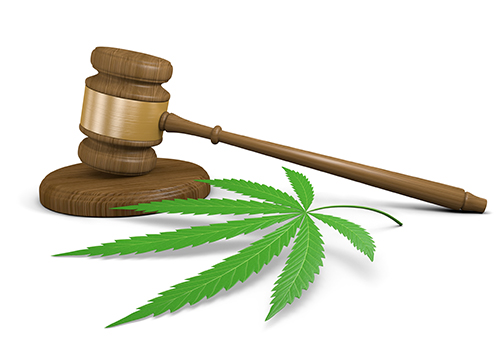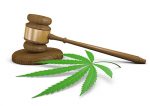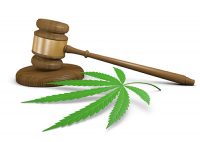On October 29, 2019, the USDA released its long-awaited draft rule establishing a domestic hemp production plan, providing clarity to growers and ancillary businesses about how the USDA will regulate the hemp crop. The USDA, under authority provided by the 2018 Agricultural Improvement Act (2018 Farm Bill), was tasked with promulgating regulations and guidelines to establish and administer a program for the production of hemp in the United States. This rule has now arrived and been published in the Federal Register. The rule provides requirements for all state and tribal hemp production plans including requirements for testing hemp, licensing growers, disposing of non-compliant hemp, and collecting and storing information related to hemp production. The USDA will now accept public comment on the rule until December 30, 2019.
Although the USDA rule will greatly contribute to the expansion of legally grown hemp in the United States, this rule does not alter the law regarding CBD foods and CBD dietary supplement products. This is because the 2018 Farm Bill left intact FDA’s authority to regulate the sale and marketing of CBD foods, dietary supplements, drugs, and cosmetics, as those product types fall under FDA’s purview generally. FDA has allowed the sale of CBD cosmetics, with certain restrictions, and companies may submit CBD products to FDA through FDA’s drug approval process. However, it has maintained that the addition of CBD to foods and dietary supplements is illegal. Under the federal Food, Drug, and Cosmetic Act (FDCA), once a substance is approved as an Active Pharmaceutical Ingredient (API) in an FDA-approved drug, that substance may not be placed into interstate commerce in a food. Also under the FDCA, once a substance is approved as an API in an FDA-approved drug, that substance is excluded from the definition of a dietary supplement. FDA approved the pediatric epilepsy drug, Epidiolex, whose API is CBD. Therefore, FDA has concluded that CBD may not be placed into foods in interstate commerce and that CBD products are excluded from the dietary supplement definition and therefore may not be sold as dietary supplements. The USDA rule does nothing to change the legal status of CBD food or dietary supplement products. Thus, despite the expected increase of hemp availability following the passage of the USDA rule, CBD companies must wait for the FDA green-light in order to manufacture or sell hemp-derived CBD food products lawfully.Learn more about important regulatory & quality issues in the cannabis space from Cannabis Industry Journal
However, the rule does state that additional hemp is necessary to support the growing CBD market, and it notably put pressure on FDA by stating that if “FDA does not provide clarity about their plans for future regulation of CBD, there will continue to be uncertainty and downward pressure on the CBD portion of the hemp market.”
So what does the USDA rule do? Under the USDA rule, states and tribes will have the option of either submitting a proposed hemp regulation plan to the USDA for approval or agreeing to submit to the USDA’s general requirements. All state and tribal plans must include certain provisions, including but not limited to:
- Land used for production: State and tribal plans must identify a process for collecting, storing and maintaining relevant information regarding land used for growing hemp in the state. This includes information regarding the description, acreage, and boundaries of the farm land.
- Sampling and testing for delta-9 tetrahydrocannabinol (THC): State and tribal plans must implement testing procedures to ensure that plants do not exceed THC levels above 0.3% (as provided in the 2018 Farm Bill). All testing facilities must be DEA approved, as non-compliant product with THC levels over 0.3% would be considered “marihuana” and a schedule 1 substance under the Controlled Substances Act of 1970 (CSA). Additionally, laboratories will be required to report a “measure of uncertainty” in their testing, designed to provide a buffer for the potential variation in sampling and testing procedures. Accordingly, plants testing higher than 0.3% THC but still within the “measure of uncertainty” will be considered compliant.
- Disposal of non-compliant products: States and tribes must develop a procedure for destroying non-compliant cannabis containing more than 0.3% THC. Because non-compliant product is considered a controlled substance, all product must be disposed of in a manner consistent with the CSA. Therefore, product must be collected and destroyed by a DEA agent or law enforcement officer.
- Inspection of hemp producers: States and tribes must develop procedures for inspecting hemp producers on an annual basis and also for inspecting random samples. The state must also develop procedures to identify and attempt to correct certain negligent acts such as not obtaining licenses or producers exceeding acceptable hemp THC levels.
- Information sharing: State and tribal plans must include procedures for reporting information to the USDA. This information must be provided to the USDA within 30 days of receipt from the hemp producers and includes contact information for all hemp producers in the state, legal descriptions of the land used for hemp production, and the license status of all hemp producers in the state.
- In states and tribes without an approved or proposed plan, hemp producers will be subject to the USDA general plan. The general plan also provides similar requirements for the testing and sampling of hemp. The USDA will provide licenses directly to hemp producers in states without an approved or submitted plan as some states may not want to have primary regulatory authority of hemp. These states will essentially hand over regulatory responsibility to the USDA. These licenses will be available by application 30 days after the final rule is published. Notably, the draft USDA rule also provides that states and tribes are restricted from prohibiting the transportation or shipment of hemp or hemp products produced under a state plan, tribal plan or a license issued under the FDA. The interstate commerce provision should put an end to the arrests of those transporting legally produced hemp from one state to another. For example, in July 2019, a trucker was arrested and charged with felony possessions of marijuana and intent to distribute while transporting legally grown hemp through South Dakota (South Dakota still considers hemp a controlled substance).
So while the USDA rule is much anticipated and grabbed the attention of many when published, food and dietary supplement manufacturers, distributors, and retailers are still stuck where they were before. We will all continue to wait and see what FDA will do.
Resource
- “Establishment of a Domestic Hemp Production Program”. (October 31, 2019). Federal Register. Retrieved from https://www.federalregister.gov/documents/2019/10/31/2019-23749/establishment-of-a-domestic-hemp-production-program.






